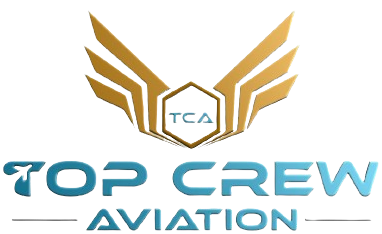Introduction – What Are ATPL Ground Classes?
If you dream of becoming a commercial airline pilot, you must have heard about ATPL Ground Classes. ATPL stands for Airline Transport Pilot License, which is the highest level of pilot certification. These ground classes are designed to prepare pilots with advanced aviation theory, safety knowledge, and flight operation skills required for flying large commercial aircraft.
In simple words, ATPL Ground Classes help you understand everything that happens before, during, and after a flight — from meteorology and air navigation to aircraft systems and flight planning. It’s not just about passing exams; it’s about building the foundation for your entire airline career growth.
Why ATPL Ground Training Is Essential for Airline Pilots
The journey from a student pilot to an airline pilot involves several stages — and ATPL Ground Training is one of the most crucial steps. These classes are not only about theory; they help you develop decision-making, problem-solving, and analytical skills that every airline expects in their pilots.
With ATPL Pilot Training, you learn how to handle real-world challenges in aviation. It ensures you’re mentally prepared for the responsibilities that come with flying hundreds of passengers safely. Many Indian aviation students now realize that ATPL training is the bridge between a Commercial Pilot License (CPL) and a successful airline career.
Key Subjects Covered in ATPL Ground Classes
During ATPL Ground Classes, students study multiple advanced subjects that go far beyond basic flying knowledge. These include:
- Air Navigation – Learning how to plan routes and navigate across countries.
- Meteorology – Understanding weather patterns and their effects on flight.
- Flight Planning and Monitoring – Managing fuel, routes, and airspace regulations.
- Aircraft Systems and Instruments – Learning how every system in an aircraft works.
- Air Law and Operational Procedures – Knowing global aviation rules and flight operations.
- Performance and Mass Balance – Calculating aircraft weight and balance for safe operations.
These subjects are a major part of DGCA ATPL Exam Preparation, helping pilots build strong theoretical knowledge before appearing for the exams.
How ATPL Theory Prepares You for Real-World Flying
ATPL theory might sound complicated, but its purpose is very practical. The goal is to make sure you can apply what you learn on paper to real-life flying situations.
For example, when you study meteorology, you learn how to predict turbulence or plan safer routes during storms. When you understand flight performance, you can manage takeoff and landing more efficiently.
That’s why airlines prefer pilots who have completed their ATPL Ground Training—because they already understand how to think and act like professionals in the cockpit.
Difference Between CPL and ATPL Training
Many students get confused between CPL (Commercial Pilot License) and ATPL (Airline Transport Pilot License). Here’s a simple comparison:
| Feature | CPL Training | ATPL Ground Classes |
| Purpose | Learn basic flying & become a commercial pilot | Prepare for airline-level flying & captain responsibilities |
| Focus | Practical flying skills | Advanced theory, safety, and flight management |
| Authority | Allows you to work as co-pilot | Required to become an airline captain |
| Duration | 12–18 months | 6–12 months (ground training) |
| Eligibility | After 10+2 with Physics & Maths | Requires valid CPL & flight experience |
In short, CPL gets you into the cockpit, while ATPL Ground Classes prepare you to sit in the captain’s seat.
Role of ATPL in Airline Career Progression
Every pilot dreams of moving up from a first officer to a captain in a reputed airline. The ATPL License in India is what makes this possible. Without it, you cannot be promoted to the rank of captain.
Airlines consider ATPL holders more knowledgeable, confident, and capable of handling advanced aircraft systems. Completing ATPL Ground Classes shows that you’ve mastered the theoretical and operational aspects of flying, which boosts your chances of career growth in the aviation industry.
Simply put, ATPL training = career advancement.
Benefits of Joining DGCA-Approved ATPL Ground Schools
Choosing the right ground school makes a big difference. A DGCA-approved ATPL Ground School ensures that the curriculum follows the standards set by India’s aviation authority.
Major benefits include:
- Structured learning with experienced instructors.
- Access to updated DGCA study materials.
- Regular mock tests for exam preparation.
- Guidance for ATPL exam documentation and procedures.
- Interaction with industry professionals for mentorship.
When you study in a reputed institute, you don’t just prepare for exams — you prepare for a long and successful airline career.
ATPL Exam Preparation Tips for Aspiring Airline Pilots
Preparing for the DGCA ATPL Exam requires consistency and smart strategy. Here are a few useful tips:
- Follow a daily study schedule – Divide your time between subjects like Navigation, Meteorology, and Air Law.
- Practice previous years’ question papers to understand exam patterns.
- Join online or offline ATPL Ground Classes for guided learning.
- Use DGCA-approved books and mock tests to improve accuracy.
- Stay connected with mentors who can help with concept clarity.
With the right preparation, clearing the ATPL exams becomes much easier.
How ATPL Ground Classes Improve Pilot Knowledge and Confidence
When you enroll in ATPL Ground Classes, you don’t just learn aviation theory — you gain confidence. These classes make you familiar with the systems, procedures, and communication standards used in airlines.
By the time you complete your ATPL Pilot Training, you’ll find yourself thinking like a professional airline pilot. You’ll understand aircraft performance, global air regulations, and flight safety better, which directly reflects in your performance during airline interviews and simulator assessments.
This confidence plays a key role in your airline career growth.
ATPL License Conversion – From CPL to Airline Pilot Path
Once you’ve earned your CPL and gained flying experience, the next step is ATPL License conversion. This process involves completing your ATPL Ground Classes, passing the DGCA exams, and meeting flight-hour requirements.
After conversion, your ATPL license allows you to apply for positions in national and international airlines. Many Indian pilots also convert their ATPL License in India to EASA or FAA equivalents, depending on where they plan to work.
This step officially transforms you from a commercial pilot into an airline-ready professional.
Top ATPL Ground Training Institutes in India
India has several reputed aviation academies offering DGCA-approved ATPL Ground Classes. Some popular ones include:
- Flight Simulation Technique Centre (FSTC) – Gurgaon
- Chimes Aviation Academy – Madhya Pradesh
- Indira Gandhi Rashtriya Uran Akademi (IGRUA) – Uttar Pradesh
- NFTI Gondia – Maharashtra
- PTC Aviation Academy – Chennai
When choosing an academy, check the instructor experience, study material quality, and student reviews to make an informed decision.
Conclusion – Building a Successful Airline Career with ATPL
If your goal is to become an airline captain someday, enrolling in ATPL Ground Classes is a must. These classes build the foundation for your professional growth by combining advanced theory, safety knowledge, and operational skills.
With the right training, preparation, and guidance, you’ll not only earn your ATPL License in India but also open the door to endless airline career growth opportunities.
So, take your dream to the next level — start your ATPL Pilot Training today and get ready to fly high in the skies.

